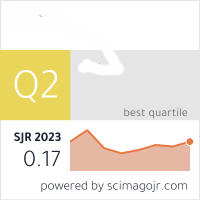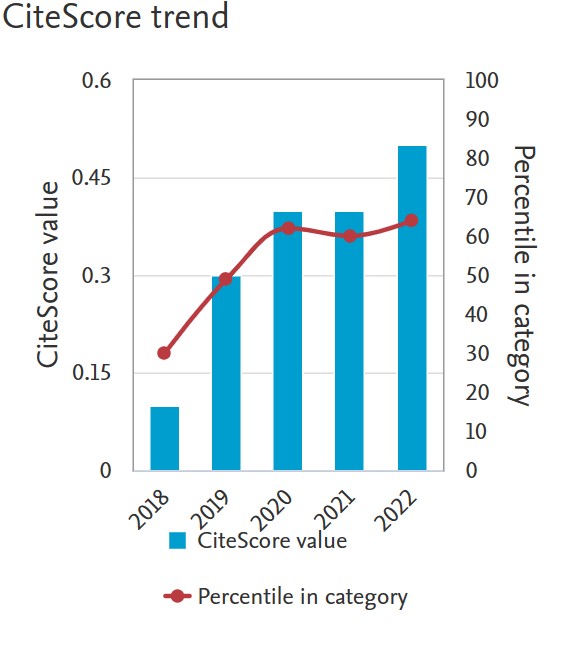Anamnesis morbi or anamnesis tubi? On the issue of the methods and methodology of the history of medicine research
Keywords:
history of medicine, philosophy and history of science, methodology, interdisciplinary research, endoscopic surgery of the abdominal organsAbstract
The methodology of the history of medicine forms the foundations of historical knowledge and helps develop a substantiated system of historical ideas to explain the circumstances surrounding the origin, formation and development of fundamental and clinical disciplines. The history of any medical field (including medical specialties) can be examined from two viewpoints: as a reconstruction of the development of disease treatment methods, implying the understanding of the evolution of the ideas of their etiology and pathogenesis, or as a chronicle of technical manipulations that is determined by procedures and priorities. In the opinion of the author of the article, it is methodologically correct to concentrate on the history of approaches to curing the various diseases and disease groups and not on the history of the specific therapeutic or diagnostic methods. Historians must aspire to identify the rules of the ontology of the development of the various fields in clinical medicine.
The formulation of the problem of the methodology of historical knowledge anticipates a conclusion made from scientific discussions on an interdisciplinary and even a meta-disciplinary level. The principal idea is that every science, by turning to a particular object in its search for information, in accordance with its research object could base the reliability of the data obtained on other criteria. Such a situation offers the possibility of dialogue between sciences according to the principle of complementarity, which would help reach a new level of understanding of the integrity of the research object and the limits of the accuracy of knowledge. The medical historian needs special medical knowledge to understand the essence of the phenomena he is studying and for historical reconstruction he needs to know the methods of historical science and the relevant humanitarian disciplines.
Downloads
References
Lappo-Danilevskiy A.S. Metodologiya istorii
[Methodology of history]. Moscow: Izdatel’skiy dom
“Territoriya budushchego”, 2006. 472 p. (in Russian)
Windelband W. Ot Kanta do Nitsshe: Istoriya novoy
fi losofi i v ee svyazi s obshchey kul’turoy i otdel’nymi
naukami [From Kant to Nietzsche: The history of new
philosophy within the framework of its connection with
general culture and separate scientifi c disciplines].
Translated from German by A.I. Vvedensky. Moscow:
KANON-press, Kuchkovo pole, 1998. 496 p.
(in Russian)
Husserl E. Filosofiya kak strogaya nauka [Philosophy as
Rigorous Science]. Novocherkassk, 1994. (in Russian)
Stepin V.S. Filosofiya nauki. Obshchie problemy
[Philosophy of science. General issues]. Moscow,
(in Russian)
The Philosophy of Science. Ed. R. Boyd, Ph. Gasper,
J.D. Trout. Cambridge, 1991. 800 p.
Murphy E.A. The logic of medicine. 2nd ed. The John
Hopkins University Press, 1997. 511 p.
Olovyannyy V.E., Fedorov A.V., Glyantsev S.P.
Laparoskopicheskaya khirurgiya v Rossii: vzglyad iz
nastoyashchego v proshloe, s nadezhdoy na budushchee
[Laparoscopic surgery in Russia: looking from the present
into the past, with a hope for the future]. Arkhangel’sk:
Izd-vo Severnogo gosudarstvennogo meditsinskogo
universiteta, 2017. (in Russian)
Kun T. Struktura nauchnykh revolyutsiy [The structure
of scientific revolutions]. Moscow: Progress, 1977. 300 p.
(in Russian)
Medushevskaya O.M. Teoriya istoricheskogo poznaniya:
Izbrannye proizvedeniya [Theory of historical knowledge:
Selected works]. Saint Petersburg: Universitetskaya
kniga, 2010. 572 p. (in Russian)
Balalykin D.A. Endoskopiya zheludka v seredine
ХХ veka (Chast’ III). Razvitie laparoskopii zheludka
[Gastric endoscopy in the middle of the 20th century.
Part 3: Gastric laparoscopy development]. Vestnik
khirurgicheskoy gastroenterologii. 2010; 2: 73–79.
(in Russian)
Balalykin D.A. Razvitie laparoskopii v khirurgii zheludka
v pervoy polovine XX v. [The development of laparoscopy
as applied in gastric surgery in the fi rst half of the 20th
century]. Khirurgiya. Zhurnal imeni N.I. Pirogova
[N.I. Pirogov Journal of Surgery]. 2009; 1: 72–75.
(in Russian)
Karsavin L.P. Filosofiya istorii [Philosophy of history].
Saint Petersburg: AO “Komplekt”, 1993. 351 p.
(in Russian)
Balalykin D.A. Istoriya razvitiya khirurgii zheludka
v Rossii v XIX–XX vv. [The history of gastric surgery
development in Russia in the 19th and 20th centuries].
Moscow: Meditsina, 2005. 320 p. (in Russian)
Endoseopiya v ginekologii [Endoscopy in gynecology].
Ed. G.M. Savelyeva. Moscow: Meditsina, 1983. 200 p.
(in Russian)
Aminev A.M. Vozrodit’ peritoneoskopiyu [Reclaiming
peritoneoscopy]. Vrachebnoe delo. 1939. № 6.
(in Russian)
Aminev A.M. Peritoneoskopiya [Peritoneoscopy].
Kuybyshev, 1984. (in Russian)
Koshchug S.D. Znachenie laparoskopii v obsledovanii
bol’nykh zlokachestvennymi novoobrazovaniyami
vnutrennikh organov [The significance of laparoscopy
for the examination of internal organ malignant tumor
patients]. Kishinev, 1969. (in Russian)
Wallerstein I. Sociology and History. Letter from the
President, No. 2, June 1995. ISA Bulletin. 1995;
–66: 1.
De Lacy Ph. Editing and Translating a Galenic Text.
In: Modern Methods in the History of Medicine / ed.
E. Clarke. London, 1971. P. 232.
Klyuchevskiy V.O. Pis’ma. Dnevniki. Aforizmy i mysli
ob istorii [Letters. Diaries. Aphorisms and thoughts on
history]. Moscow: Nauka, 1968. 528 p. (in Russian)
Fevr L. Boi za istoriyu [Combats pour l’histoire]. Moscow:
Nauka, 1991. 635 p. (in Russian)
Yadov V.A. Sotsiologicheskie issledovaniya: metodologiya,
programma, metody [Sociological research: methodology,
programme, methods]. Moscow: Nauka, 1972. 240 p.
(in Russian)
Yadov V.A. Strategiya i metody kachestvennogo
analiza [Strategy and methods of qualitative analysis].
Sotsiologiya [Sociology]. 1991; 1: 14–31. (in Russian)
Devyatko I.F. Diagnosticheskaya protsedura v sotsiologii.
Ocherk istorii i teorii [Diagnostic procedure in sociology.
An outline of history and theory]. Moscow: Nauka,
(in Russian)
Devyatko I.F. Modeli ob”yasneniya i logika
sotsiologicheskogo issledovaniya [Explanatory models and
logic of sociological research]. Moscow: IS RAN, 1996.
(in Russian)
Meter K. Metodologiya sotsiologii [Methodology of
sociology]. Mezhdunarodnyy zhurnal sotsial’nykh nauk
[International journal of social sciences]. 1994. № 3.
(in Russian)
Newman L. Analiz kachestvennykh metodov [Analyzing
quality data]. In: Sotsiologicheskie issledovaniya. 1998.
№ 3, 6, 12. (in Russian)
Sartre J.-P. Problemy metoda [The problem of method].
Moscow: Progress, 1993. (in Russian)
Haise D. Prichinnyy analiz v sotsiologicheskikh
issledovaniyakh [Causal Analysis]. Moscow, 1981.
(in Russian)
Alekseev A.N. Poznanie cherez deystvie. Fragmenty
eksperimental’noy sotsiologii [Knowledge through action.
Fragments of experimental sociology]. Vol. 1–3. Moscow:
IS RAN, 1993. (in Russian)
Romanovskiy N.V. Istoricheskaya sotsiologiya [Historical
sociology]. Moscow, 2009. 320 p. (in Russian)
Downloads
Published
Issue
Section
License
You are free to:
- Share — copy and redistribute the material in any medium or format for any purpose, even commercially.
- Adapt — remix, transform, and build upon the material for any purpose, even commercially.
- The licensor cannot revoke these freedoms as long as you follow the license terms.
Under the following terms:
- Attribution — You must give appropriate credit , provide a link to the license, and indicate if changes were made . You may do so in any reasonable manner, but not in any way that suggests the licensor endorses you or your use.
- No additional restrictions — You may not apply legal terms or technological measures that legally restrict others from doing anything the license permits.
Notices:
You do not have to comply with the license for elements of the material in the public domain or where your use is permitted by an applicable exception or limitation .
No warranties are given. The license may not give you all of the permissions necessary for your intended use. For example, other rights such as publicity, privacy, or moral rights may limit how you use the material.











